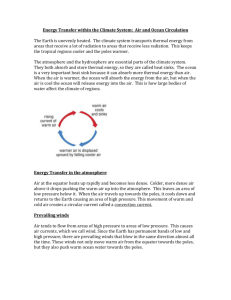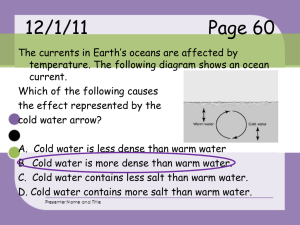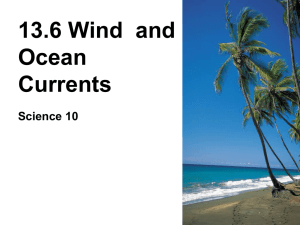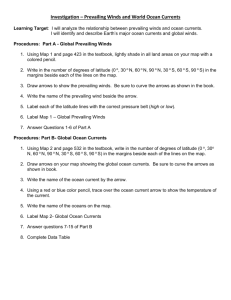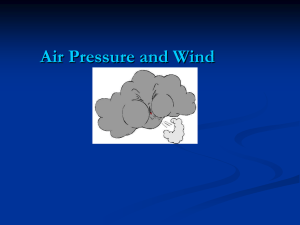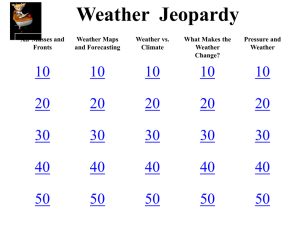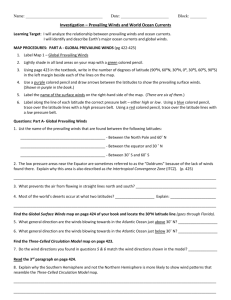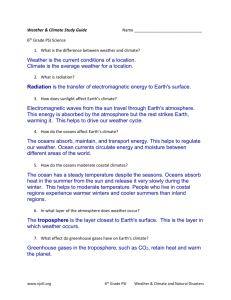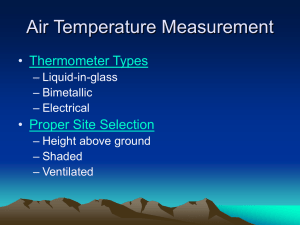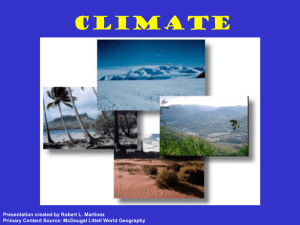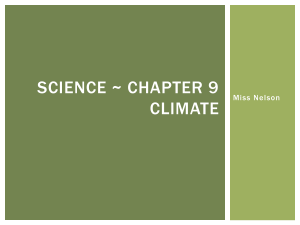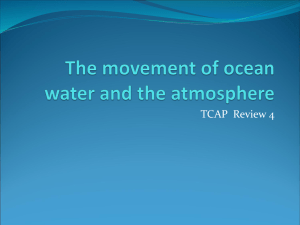Lesson 4 - Air and Ocean Circulation (1)
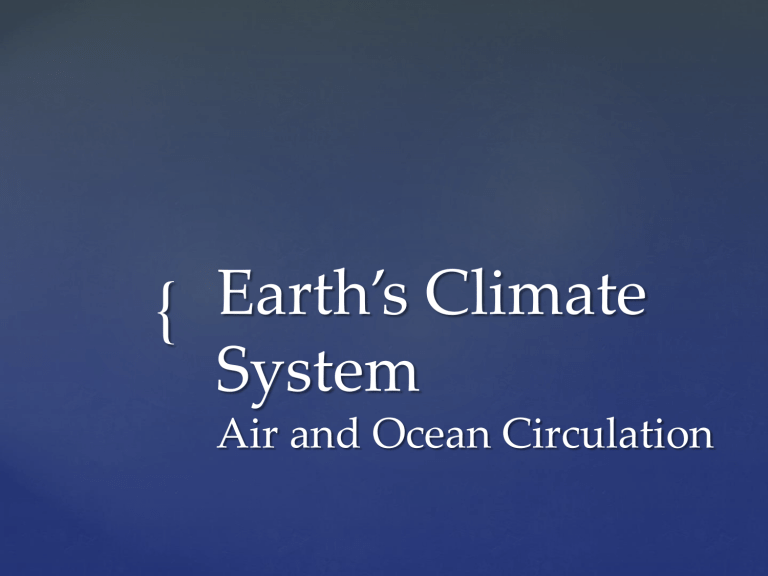
{
Earth’s Climate
System
Air and Ocean Circulation
In order to understand climate change, we have to understand how climate first works.
The Earth is unevenly heated....
The Sun’s radiation reaches Earth’s surface at different intensities
Water and land absorb energy at different rates
Water absorbs more thermal energy than air
Thermal Energy Circulation
Thermal Energy is transported from areas that receive a lot of radiation to areas that receive less radiation.
This keeps polar regions warmer and tropical regions cooler than they would otherwise be
Uneven Heating Creates
Currents
Warm air is less dense than cold air which means that hot air rises; this creates currents
http://www.youtube.com/watch?v=4cOMushj
7w8
Warm water is less dense than cold water which means that warm water rises; this creates currents
http://www.youtube.com/watch?v=bN7E6FC uMbY
A circular current in air and other fluids
(water) caused by the rising of warm fluid as cold fluid sinks
Convection Currents
As warm air rises, it creates an area of low pressure below it
As cool air falls, it creates an area of high pressure
Energy Transfer in the Atmosphere
Air flows from areas of high pressure to areas of low pressure – this makes air currents or wind
Energy Transfer in the
Atmosphere
Prevailing Winds
The Earth has permanent bands of high and low pressure
at the equator, 30 o latitude, 60 o latitude, and poles
Prevailing Winds
High and Low pressure, along with the rotation of the Earth causes winds that curve around the globe in the same direction almost all the time
Prevailing Winds
Prevailing winds push warm air (as well as warm ocean water) from equator to the poles
Global Air Circulation
Animation
Prevailing winds are named based on the direction they originate from
http://www.youtube.com/watch?v=DHrapzHP
CSA
Prevailing Winds and Climate
Zones
Regions where prevailing winds pass over water before reaching land have higher amounts of precipitation (ie: South American rainforest)
Prevailing Winds and Climate
Zones
Prevailing winds from the North Pole will be cold and dry and cause areas that receive this wind to be cold and dry (ie: Northern
Canada)
Energy Transfer in the
Oceans
As water travels to the poles, it gets colder and saltier and therefore more dense
Surface water evaporates and sea ice forms (both reject salt)
Energy Transfer in the
Oceans
Dense water at the poles will sink to the ocean floor
Warmer surface water from the equator flows towards the poles to take its place
Thermohaline Circulation
The continuous flow of water around the world’s oceans driven by differences in water temperature and salinity
http://www.youtube.com/watch?v=w_8mw-1HYFg
http://www.youtube.com/watch?v=FuOX23yXhZ8
Ocean Currents & Climate
Zones
Warm ocean currents heat the air above them which moves to the land and produces rain
Cold ocean currents cool the air above them causing cool, dry air to reach the land creating desert areas
Homework
Read Section 8.8 (pg. 344-347)
answer questions #1, 4-7
